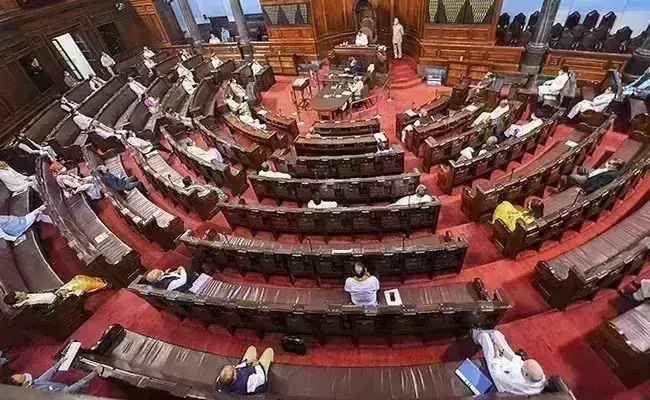
Tribunal Reform Bill for abolition of 9 appellate tribunals passed
text_fieldsThe Rajya Sabha on Monday passed the Tribunals Reform Bill, 2021, which seeks to abolish nine appellate tribunals, including the Film Certification Appellate Tribunal (FCAT). The Lok Sabha had approved the bill on August 3.
The bill seeks to amend the Cinematograph Act, 1952, the Customs Act, 1962, the Airports Authority of India Act, 1994, the Trade Marks Act, 1999, the Protection of Plant Varieties and Farmers' Rights Act, 2001, the Geographical Indications of Goods (Registration and Protection) Act, 1999, the Control of National Highways (Land and Traffic) Act, 2002, and certain other legislation. All pending cases pending before these tribunals or authorities would instead be transferred to the Commercial Court or High Court.
In the discussion on the bill, Finance Minister Nirmala Sitharaman denied the allegations of the opposition that the legislation undermines the judicial system. Instead, it fully respects the independence of the judiciary, she said. "Who is speaking? Members from the Congress party, which during the Emergency completely curtailed the judiciary. Today such a party asks us of judicial independence. What a shame!" she said. "What are they (Congress) talking about? Independence of Judiciary? I am astonished!" she added.
Dismissing arguments that the bill violated Supreme Court rulings, she said, "Judiciary has not struck it down on constitutionality. It has only raised certain questions on some points."
The priority of the legislature to make laws is as important as the independence of the judiciary, she remarked.
"We are here to make laws. Of course, we have to keep in line with the requirements of the Constitution...We fully respect the independence of the judiciary, but we also remember the power of the law-making body where we are seated here to make the law for the sake of the common people," she said.
The opposition's statutory motion to send the bill to a select committee for scrutiny was negated by a division vote. While 44 voted in favour of sending it to a select committee, 79 voted against it.
The rationalisation of tribunals, however, is not new. It kickstarted in 2015. By the Finance Act of 2017, seven tribunals were abolished or merged based on functional similarity, and the total number of tribunals fell from 26 to 19. In the first phase, unnecessary tribunals were shut down, and those with similar functions merged. Though the Tribunals Reforms (Rationalisation and Conditions of Service) Bill, 2021, was introduced in the Lok Sabha on February 13, 2021, it could not be passed in the Budget session of the parliament. After withdrawing the one introduced in February, the Finance Minister again presented it in the Lok Sabha last week.























